
The next government has to make important decisions that will affect the retail and Travel and Tourism sectors - and therefore our business. We asked our colleagues from various specialist areas what they think needs to happen from a political perspective in the coming years and what needs to be left to the economy to make the industry fit for the future.
![]() "Travelling should remain affordable. But in view of the increasing risks, it is not easy for us package tour operators to cope with the rising costs. In view of the worsening extreme weather conditions alone, the cost risk for package tour operators will increase. I therefore hope that the new federal government will work within the EU to ensure that package holidays remain competitive as the safest travel product. There must be no further cost drivers. In addition, the educational work regarding the added value of package holidays should be politically flanked - also in contrast to individual services. It must be very clear to end customers that they are on their own when booking an individual holiday in a crisis situation, such as extreme weather, and must bear the costs for return flights, among other things."
"Travelling should remain affordable. But in view of the increasing risks, it is not easy for us package tour operators to cope with the rising costs. In view of the worsening extreme weather conditions alone, the cost risk for package tour operators will increase. I therefore hope that the new federal government will work within the EU to ensure that package holidays remain competitive as the safest travel product. There must be no further cost drivers. In addition, the educational work regarding the added value of package holidays should be politically flanked - also in contrast to individual services. It must be very clear to end customers that they are on their own when booking an individual holiday in a crisis situation, such as extreme weather, and must bear the costs for return flights, among other things."
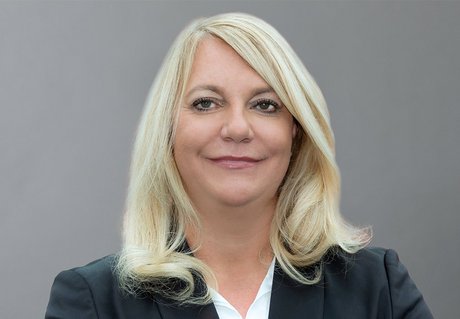 Melanie Gerhardt,
Melanie Gerhardt,
Head of DERTOUR Crisis and Security Management
![]() "Consumers should be further empowered to make informed decisions about their diet and food choices. In addition to suitable labelling systems that take into account practicality and efficiency as well as real added value for the consumer, we believe that nutritional education from an early age is also a decisive factor. We would like to see more commitment from the next federal government in this area.
"Consumers should be further empowered to make informed decisions about their diet and food choices. In addition to suitable labelling systems that take into account practicality and efficiency as well as real added value for the consumer, we believe that nutritional education from an early age is also a decisive factor. We would like to see more commitment from the next federal government in this area.
For us in quality management, consumer protection and food safety are our top priorities. To this end, it is essential that regulations are interpreted and applied uniformly at least nationally, ideally even Europe-wide. However, we repeatedly see different interpretations of standards, for example in food inspections in the federal states or even at municipal level. In our view, the new federal government should endeavour to avoid patchworks at both national and European level."
 Charlotte Rosendahl,
Charlotte Rosendahl,
Executive Director Quality Management
![]() "The city centres and district centres of our cities have always been the defining locations of society. Here, retail is both a customer magnet and a shop window, catering for the people who live there, employees and visitors. With its flexible store concepts, REWE Group has been the urban local and frequency supplier in these centres for many decades. The neighbourhood of businesses, restaurants, cultural and leisure facilities and residential areas benefit from this. To ensure that the existing food retail sector and its new openings can continue to serve customer needs, a legal framework is needed to promote the further development of the "city centre" location. Urban development programmes, ensuring accessibility by public transport as well as by private and delivery traffic and an overall attractive environment are essential and must be taken into account just as much as flexible building planning regulations. We need to move from managing to shaping!"
"The city centres and district centres of our cities have always been the defining locations of society. Here, retail is both a customer magnet and a shop window, catering for the people who live there, employees and visitors. With its flexible store concepts, REWE Group has been the urban local and frequency supplier in these centres for many decades. The neighbourhood of businesses, restaurants, cultural and leisure facilities and residential areas benefit from this. To ensure that the existing food retail sector and its new openings can continue to serve customer needs, a legal framework is needed to promote the further development of the "city centre" location. Urban development programmes, ensuring accessibility by public transport as well as by private and delivery traffic and an overall attractive environment are essential and must be taken into account just as much as flexible building planning regulations. We need to move from managing to shaping!"
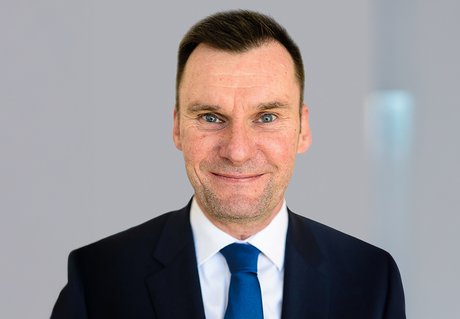 Christian Schneider,
Christian Schneider,
Head of Expansion REWE Markt GmbH
![]() "The year 2024 has clearly shown one thing: Numerous regulations and decrees, both at European and German level, are increasingly complicating and complicating the processes in our markets - and unfortunately more and more often without any recognisable added value for our core business. I would like to see legislation that steers sensibly and acts where it is effective, but without a watering can and bloated regulations. Instead, I would like to see more time spent on providing a better service. And where it really counts: With our customers!"
"The year 2024 has clearly shown one thing: Numerous regulations and decrees, both at European and German level, are increasingly complicating and complicating the processes in our markets - and unfortunately more and more often without any recognisable added value for our core business. I would like to see legislation that steers sensibly and acts where it is effective, but without a watering can and bloated regulations. Instead, I would like to see more time spent on providing a better service. And where it really counts: With our customers!"
 Jan Tollert,
Jan Tollert,
Head of Sales Processes REWE Markt GmbH
![]() "We expect the needs of co-operative business models in retail to be supported and the framework conditions to be created in which co-operative forms of business can develop positively in the long term. It is particularly important to strengthen medium-sized companies - as large employers - and to reduce bureaucratic hurdles such as reporting obligations. Today's requirements must not only be thinned out, but lean implementation of EU legislation must also be sought."
"We expect the needs of co-operative business models in retail to be supported and the framework conditions to be created in which co-operative forms of business can develop positively in the long term. It is particularly important to strengthen medium-sized companies - as large employers - and to reduce bureaucratic hurdles such as reporting obligations. Today's requirements must not only be thinned out, but lean implementation of EU legislation must also be sought."
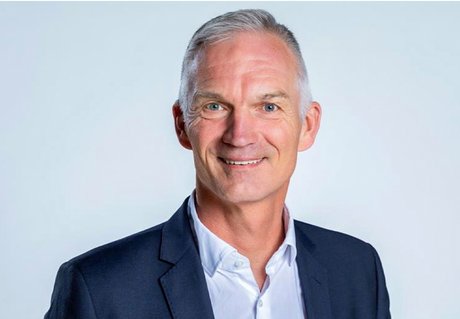 Thomas Nonn,
Thomas Nonn,
Divisional Director Self-Employment and Co-operatives
![]() "As a company with an unusually broad range of topics, we are also strongly affected by political measures, from employer and consumer protection issues to regulations in the areas of digitalisation and nutrition, logistics and Travel and Tourism. The Public Affairs team monitored a good 300 topics in parallel last year! Don't get me wrong: we support many of the legislative proposals. But as a commercial enterprise, we need more room for manoeuvre. We know our business and our responsibility towards our employees, farmers, customers and independent retailers best. Bureaucratic and regulatory requirements are increasingly restricting our room for manoeuvre, and I would like to see the reduction that has often already been promised."
"As a company with an unusually broad range of topics, we are also strongly affected by political measures, from employer and consumer protection issues to regulations in the areas of digitalisation and nutrition, logistics and Travel and Tourism. The Public Affairs team monitored a good 300 topics in parallel last year! Don't get me wrong: we support many of the legislative proposals. But as a commercial enterprise, we need more room for manoeuvre. We know our business and our responsibility towards our employees, farmers, customers and independent retailers best. Bureaucratic and regulatory requirements are increasingly restricting our room for manoeuvre, and I would like to see the reduction that has often already been promised."
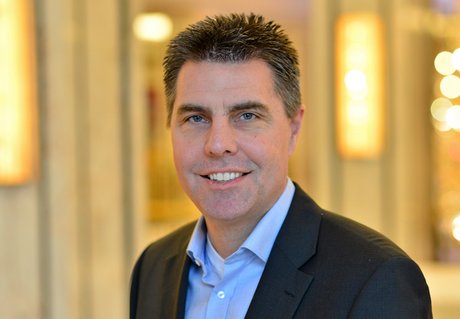 Dr Sven Spork,
Dr Sven Spork,
Divisional Director Corporate Affairs
![]() "I hope that a reliable, stable government will be formed soon after the election that will tackle the important tasks of the future in a consensual manner. In my opinion, this includes targeted investment in education, infrastructure, digitalisation and a reliable, affordable energy supply. Overall, more speed of action, a reduction in bureaucracy and simplified authorisation and planning procedures are needed in order to overcome the weak growth in an improved investment climate. Incentives for work and entrepreneurship must be increased in order to counteract the loss of prosperity. Our country needs an "Integration" masterplan in order to meet the demographic challenges with social consensus."
"I hope that a reliable, stable government will be formed soon after the election that will tackle the important tasks of the future in a consensual manner. In my opinion, this includes targeted investment in education, infrastructure, digitalisation and a reliable, affordable energy supply. Overall, more speed of action, a reduction in bureaucracy and simplified authorisation and planning procedures are needed in order to overcome the weak growth in an improved investment climate. Incentives for work and entrepreneurship must be increased in order to counteract the loss of prosperity. Our country needs an "Integration" masterplan in order to meet the demographic challenges with social consensus."
 Stefan Lenk,
Stefan Lenk,
REWE businessman and Chairman of the Supervisory Board of REWE Dortmund

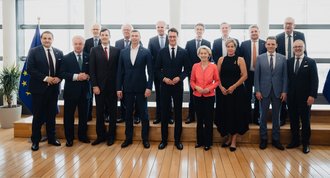




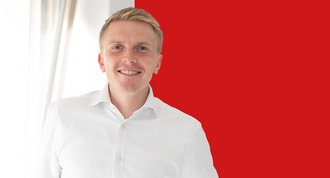






Both German and English comments appear here.
The election topic: For my part, I think it's very good that you're mentioning it on your portal. I just hope that the right people win the election and that at least 80% of eligible voters go to the polls. Will it be better then? But a real decision and hopefully not a grand coalition. Germany has not followed many decisions and is in a deep crisis. I am 62 years old and I used to be really proud to be one of us, for example. B.: The promised beer mat tax return. etc. It's too complicated to get anything going in our country. Regulations, bureaucracy, etc. It prevents us as employees and you as a company from bringing something good into the world. Why? Greetings from the all-rounder team at REWE. The logistics. The drivers. Hans-Peter Vitt